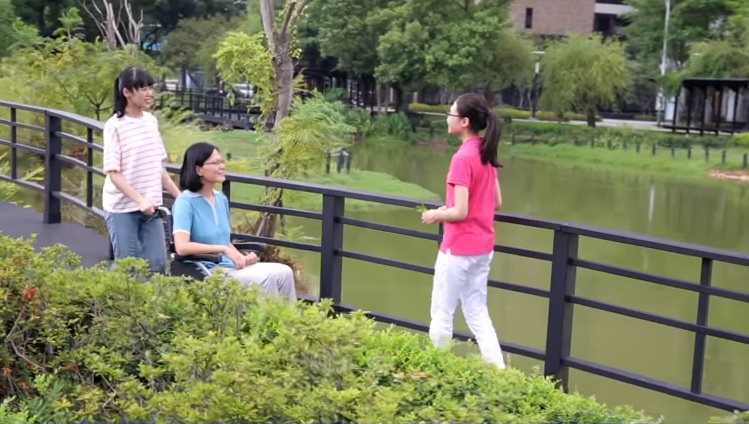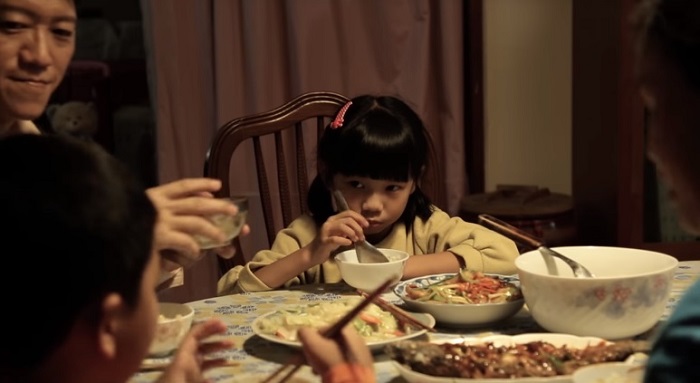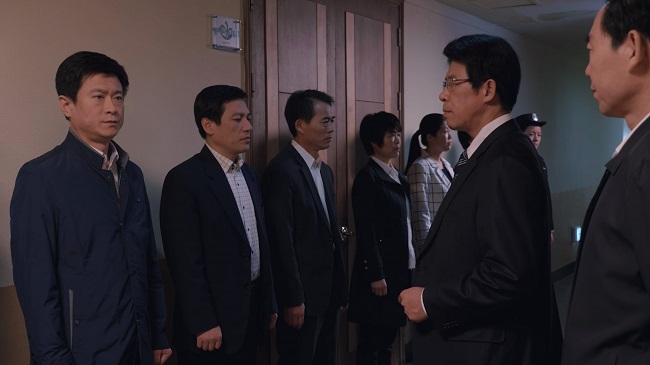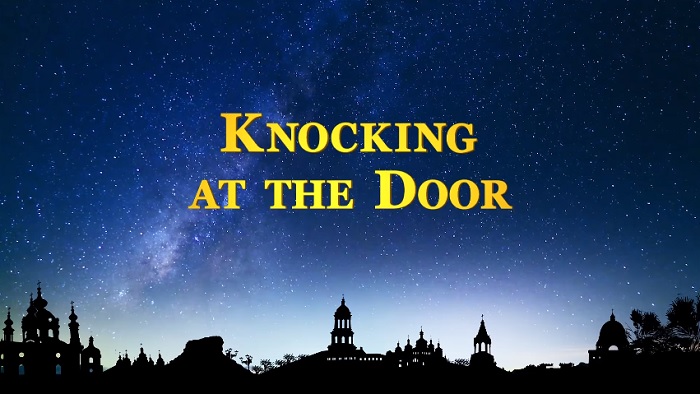Movie Review: Where Is My Home—Live Our One Life for God
Many friends around told me that the movie “Where Is My Home” moved them to tears from the beginning to the end. So they strongly recommended it to me. And I did, and wetted many paper napkins. This Christian film talks about the affection and family, and about human life, inspiring us quite a lot.

Every Family Has Problems
The main character in the film is Wenya, whose parents got divorced when she was two. At first she lived with her father and stepmother. However, her stepmother couldn’t tolerate her existence and thereby quarreled with her father constantly. Then she was sent to her mother and stepfather’s home. But her mother is too busy with her own business to look after her, so Wenyan is left to the care of her relatives, as if a parentless child. Being devoid of the warmth of family from an early age, Wenya has an inner yearning for a warm family all the way. After she grows up, she and her father keep each other’s company, but misfortunes come one after another: Her mother suffers from stroke and her father is diagnosed with liver cancer. Wenya’s life is stuck in a dreadful plight. She feels helpless, and has to turn to her relatives and friends. But those who used to fawn over her parents all keep their distance from her.
The film seems to tell us of the sorrows and joys of an ordinary family. And its plot is as common as an occurrence in our daily life. But it is such a plot in touch with real life that makes every audience follow the characters in the film to taste the various flavors of life.
The Wandering Heart Has No Berth
The film opens with a shot showing a dream of little Wenya. The director specially creates a warm scene where a family of four are having a picnic in the open air. The scene is composed of blue sky, white clouds, grassland, big trees, and parents with their kids. Its bright and harmonious color makes us feel happy, free, and full of life. However, after the transient happiness comes the endless pain. In the dream, little Wenya is looking for her father, mother and sister cryingly. But soon the quarrels of her stepmother and father draws us back to reality: Little Wenya jerks awake; out of fright, she sobs secretly with her hands covering her ears. The sharp contrast of the dream and the reality can touch the soul of every audience, and we can’t help feeling pity for her misfortunes. Here the director is inventive to have minutely described the main character’s fragile, painful, and helpless inner world from a child’s perspective, in contrast with her inner yearning for the warmth of family. Thus the theme of this film is highlighted.

There are several close-ups of little Wenya which impress me very much. At her uncle’s home, she is feeding herself at the table, with her eyes fixed upon the happiness of her uncle’s family. The sight of her delicate and touching manner makes our heart ache. In the still of the night, little Wenya lies in bed and sheds tears secretly. In the supermarket, little Wenya hugs her mother, pleading earnestly, “I wanna nothing. I only wanna be with you forever.” When it is time to part with her mother, little Wenya expresses her reluctance with her tears. When the appointed time arrives, little Wenya sits early at the door, waiting for her mother to pick her up. On the New Year’s Eve, by the roadside, little Wenya stops with her small suitcase to stare at the fireworks. Accompanied by the slow and mournful theme song, her tender eyes revealed her endless longing for the warmth of family. The little actress whose performance is very natural and authentic, impresses us with her character, little Wenya, an obedient and adorable girl. And she looks so heartbreakingly vulnerable, which arouses our love and makes us want to protect her young heart from getting hurt again. I remember there is a scene in the film, when she is to part with her father, her father gently folds her in his arms and comforts her, “Wenya is absolutely not a wild kid. Wenya is daddy’s baby girl.” Paternal love is shown between the lines, and their reluctance and helplessness to part is especially wrenching.
Wenya’s Drawings
Wenya loved drawing from a tender age. She anchors her yearning for a warm family on her drawing paper, which is displayed many times at the beginning and end of the film. The changes in the content of her painting reflect the changes of her inner world. From the outset, little Wenya draws a picture of her whole family living happily together. Later, Wenya and her father appears in a paper while her mother and sister in another, indicating that she once had a happy family, while after the divorce of her parents, the once happy family is broken up into two. Especially on the New Year’s Eve, after Wenya reaches her family’s old house with her sister, she draws something on the paper silently, and seems like dying to pour out her heart onto it. The attentive look somewhat beyond her age makes us feel as if Wenya has grown up a lot suddenly.
The camera then cuts to Wenya painting a picture in the studio, who has grown up to be a senior in high school. The look on her face is still that attentive. In the big woods of the picture, a girl is leaning against a tree, reading a book. The picture looks peaceful and quiet, but implies the main character’s lonely and unsettled heart. When Wenya grew up, although she is vivacious and outgoing and lives a peaceful life with her father, the harm arising from her vagrant life since young struck a sense of loneliness into her heart. As the plot developed, the inner loneliness began to show itself. After her mother is hospitalized due to stroke, her merciless stepfather forcibly occupied the family property. Under such a heavy blow, her mother loses the courage to live on.  Wenya assumes fortitude and tenderly cares for her mother with her sister. However, it never rains but it pours. At the approach of the college entrance examination, her father is diagnosed with advanced liver cancer and is immediately hospitalized. The sudden misfortunes, and the great stress from life and study, fill Wenya’s heart with the fear of suffering losses. At this moment, Wenya has no one to rely on. She can only wail loudly and bitterly in the corridor of the hospital. The plot full of twists and turns, leaves us wrenched and repressed. We cannot but say silent prayers, calling God to save this poor girl and lead her to live on.
Wenya assumes fortitude and tenderly cares for her mother with her sister. However, it never rains but it pours. At the approach of the college entrance examination, her father is diagnosed with advanced liver cancer and is immediately hospitalized. The sudden misfortunes, and the great stress from life and study, fill Wenya’s heart with the fear of suffering losses. At this moment, Wenya has no one to rely on. She can only wail loudly and bitterly in the corridor of the hospital. The plot full of twists and turns, leaves us wrenched and repressed. We cannot but say silent prayers, calling God to save this poor girl and lead her to live on.
Through many real episodes of life, the director keeps gathering Wenya’s inner agony, successfully depicting her complicated thought when she is aching for a family and trying to preserve it but can only helplessly watch it being broken. Since the actress shares similar experiences with her character in the film, she plays herself and performs well, leaving the audience with a lasting impression of the innocent, kind, strong, and optimistic character on the silver screen.
The Home for the Wandering Heart to Moor
Right when Wenya’s family are encountering these misfortunes, her mother’s friends come for a visit, and witness to them God’s work of the last days. It’s true that the end of man really is the beginning of God.
In a scene, Wenya asks, “Why does man live so bitterly?” I’m a little startled. How can such heavy words come out of a teenage girl’s mouth. Has she already tasted the bitterness of life at such a young age? Many children of her age might still behave in a spoiled manner before their parents. Nevertheless, Wenya’s question is not unexpected because it has been foreshadowed in the former plot. The director arranges for Wenya to say these lines, with the aim to raise the inner perplexity of many people, and to arouse more people’s reflection.
After the witnesses read God’s words and fellowshiped God’s will with Wenya and her mother, they understand the root cause of the world’s darkness and evil and humans’ bitter life is that we humans are corrupted by Satan, and lose the care and protection of God, so we live in great bitterness. It’s the truth. Man was created by God and can rely on God. But when we humans stray far from God and follow Satan, we become rootless and can only face Satan all alone by ourselves. How can us humans, so weak, withstand Satan’s affliction? As a result, all mankind were born in tears and die in despair after tasting all the bitterness and vicissitudes of their life. We mankind are in too much need of God’s salvation.
In describing how the main character tastes the warmth of family, the director doesn’t focus on the big house or its luxurious decorations, but focuses on the people living in the house. Shots of their simple life strike a chord with us audience in particular. Brothers and sisters of the church help to clean their house, and even attend to Wenya’s father so that she could keep her mind on reviewing her lessons. At night, they cook red bean soup for Wenya as her midnight snack. The careful audience should have found that in a previous shot, Wenya’s father has ever passed to her a cup of hot milk when she was reviewing her lessons. At this moment, it does not matter whether the soup is tasty or not. The concern and care only from family move Wenya a lot. The actors’ performances are natural and honest, ordinary but warm, fully conveying to the audience God’s mute love and salvation for man.
The most moving part of the film is Wenya sinking into the sadness of losing her father. Losing the support of her father seems to throw Wenya back to her former sadness and helplessness in childhood when she lost a complete home. Nobody’s comfort can ease her inner agony, but only the guidance of God’s words pulls her through. Later she tells her mother, “How lucky that we have believed in God. Otherwise, I won’t know how to live on.” The grown-up words suggest that she is no longer the little girl who has no one to depend on; although her father has left her forever, God finds her and becomes her real reliance.
I very much like the scene of Wenya reading God’s words. For on the one hand, her emotional reading is infectious to all the people on and off the screen. More importantly, on the other hand, the passage of God’s words reveals God’s thorough understanding and loving calls to man. Every single word can touch one’s heart. It is just like a traveler in the endless snowfield, who is walking with difficulty and searching for the warmth of light in the darkness, suddenly finds a warm house in front of him and his mother waving incessantly to him at the door. And this reminds me of the parable of the prodigal son.
At this very moment, Wenya feels as if the Creator is talking to her face to face. She is moved and choked with sob. How can the audience not feel the same way? Even though man has great wealth, fame and status, once they leave God, they are orphans in spirit and can’t enjoy spiritual peace and joy. They are powerless to resist against Satan independently and can only be fooled and afflicted by Satan. Only the almighty God can save man from Satan’s affliction; only God waits silently by man’s side when man has no reliance; only God is the most real reliance for all people. This is also the most important information the director means to convey to the audience.
In the film, Wenya is comfortably off since childhood and lives in a big house, but she feels no shred of happiness. So she has been longing for a warm family. Her mother has wealth and fame and is nattily dressed, but she harvests no happiness, either. She suffers her husband’s betrayal, loses all her hard-earned property, and narrowly escapes losing her life in the end. So we can see: Having food and clothing doesn’t mean happiness, home means more than a shelter from wind and rain. In the film, Wenya and her mother represent two typical kinds of people. No matter what good materials they enjoy, they possess no real home, they are hollow and thirsty in spirit alike. While we are sighing over the fickleness of the world and over man being not what they were in times past, we can’t help pondering: Where is actually the real home?
At the end of the film, the director applies different ways to expressing his understanding of a real home. As for props and scenery in Wenya’s room, we can find the content of her painting has changed again. It is a picture of a beautiful big house against blue sky, grassland, and big trees. As for the background music, the closing song was impressive with its storytelling lyrics: The first two sad paragraphs threaded the whole plot; the third brisk and bright paragraph repeated the explanation of “home”. The director specially displays Wenya’s episodes of life in God’s family, inviting the audience to see the believers in God are living in abundant peace and joy. Whether it is in their personal spiritual life or whether they are reading God’s words together or performing their duty of a created being, we can see that they comfort each other when they are in sadness, and even in doing the most common thing, their relationships are built upon the love of God, and everyone looks so relaxed, liberated and happy. The montage of these shots is wonderful, pleasing to the heart and making people yearn for the life in it: The material home can be broken at any time, but there is one eternal home in God: It’s God’s home. It’s the harbor for our heart to moor, and the destination we truly belong to.
Live Our One Life for God
Films exploring humanity have been many, but none of them has arrived at any conclusion. Their directors either seek for self-comfort or leave the audience in suspense. Whereas this film fully explains the root cause of man’s bitter life and also shows the way to get rid of the bitterness. That is the greatest value of this film. Each of us humans come to this world, carrying God’s mission and commission for us. Then how can we live up to the breath bestowed by God and leave no pity behind? The answer seems to be in the following words that Wenya read at the end of the film: “Have you forgotten that you are one of the victims? Are you not willing to strive, out of your love for God, to save these survivors? Are you not willing to devote all of your energy to repaying God, who loves mankind like His own flesh and blood? When all is said and done, how would you interpret being used by God to live your extraordinary life? Do you really have the resolve and confidence to live the meaningful life of a pious, God-serving person?”
Belief in God is the right path of human life. Only by understanding and obtaining the truth can one have true happiness. From these words of God, Wenya has found the real home. Can we also appreciate from the movie, the love and salvation of God, and receive the mercy of God and live in peace and happiness like Wenya?





